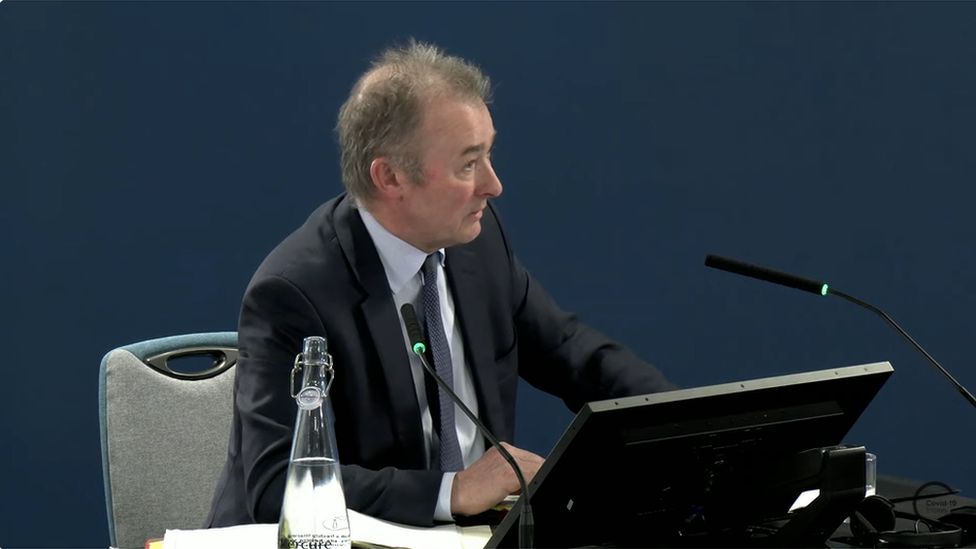
Boris Johnson deliberately chose not to personally meet with first ministers of the devolved nations during the pandemic as he thought it would be “optically wrong”
WhatsApp messages show Welsh government ministers were unsure about their own Covid rules, an ex Welsh secretary told the Covid inquiry.
Simon Hart said members of First Minister Mark Drakeford’s own cabinet were expressing a “surprising amount of confusion” about what they could do.
He also suggested that the motivation for differing rules was “to be different just for the sake of it”.
The comments come on the eighth day of the UK inquiry’s Welsh module.
Hart, the first politician to give evidence at the inquiry said: “Mark’s [Drakeford] own team were WhatsApping each other saying ‘I don’t fully understand the rules, can anybody tell me?’
“All of that is laid out in some detail in their WhatsApp exchange… there was significant confusion.”
The former Welsh secretary added that Covid rules should have been UK wide, and said he found it “increasingly disturbing” that the pandemic was being dealt with along political boundaries.
But, he said he did not believe there was any complacency in the Welsh government’s response in the early stages of the pandemic.
In addition, the most senior adviser to the first minister admitted that the messaging service was used incorrectly.
The inquiry was shown a Welsh government notice informing workers that “personal WhatsApp accounts may not be used for Welsh government business”.
Image source, Covid Inquiry
Jane Runeckles said there was “tension” due to differing UK and Welsh Covid rules
Jane Runeckles said she had confirmed with the civil service that she did not receive this notice, but added that she recognised she was not allowed to use her personal phone for work purposes.
She said work WhatsApp groups on her personal phone were used for “admin purposes” and “team morale” only.
When asked by inquiry chairwoman Baroness Hallett that “wasn’t using your personal phone for admin purposes using it for Welsh government business?”, she replied “yes”.
Baroness Hallett then followed up saying “so you were using it wrongly?”, to which she said “yes”.
Last week, the inquiry was told that Ms Runeckles, in addition to former Health Minister Vaughan Gething, turned on WhatsApp’s disappearing messages feature.
Image source, Getty Images
WhatsApp messages between UK officials and ministers have been a key part of recent evidence heard by the Covid inquiry
The inquiry heard that disappearing WhatsApp messages were turned on in more than one group at different times during the pandemic.
Ms Runeckles switched the auto-delete function on, which erases messages after seven days.
When asked why she insisted she felt “there wasn’t any evidence of decision-making in any of these groups”.
Baroness Hallett intervened to say it was not just decision making that should be recorded but “the importance of keeping records… for public accountability”.
In another group, containing Ms Runeckles and Welsh government lawyers, disappearing messages were turned on by another member of the group on 15 June 2021, she said she “didn’t know why”.








